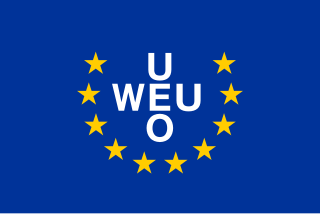See also
- CSD Pakistan (Canteen Stores Department Pakistan), retail store chain
CSDP usually refers to the Common Security and Defence Policy of the European Union (EU). CSDP may also refer to:

The Western European Union was the international organisation and military alliance that succeeded the Western Union (WU) after the 1954 amendment of the 1948 Treaty of Brussels. The WEU implemented the Modified Brussels Treaty. During the Cold War, the Western Bloc included the WEU member-states, plus the United States and Canada, as part of the North Atlantic Treaty Organization (NATO).

A think tank, or policy institute, is a research institute that performs research and advocacy concerning topics such as social policy, political strategy, economics, military, technology, and culture. Most think tanks are non-governmental organizations, but some are semi-autonomous agencies within government, and some are associated with particular political parties, businesses or the military. Think tanks are often funded by individual donations, with many also accepting government grants.
CPP and cpp may refer to:
CDS, CDs, Cds, etc. may refer to:
CMP may refer to:

The Swedish Confederation of Professional Employees is a national trade union centre, the umbrella organisation for 12 trade unions in Sweden that organise professional and other qualified employees in both the private and the public sectors. The affiliated trade unions represent about 1.2 million employees. In 2018, the TCO affiliated unions made up 37% of all active trade union members in Sweden, making the confederation the second largest of Sweden's three major confederations. The largest TCO affiliate is Unionen with 551,000 active members in 2018. TCO is independent and not affiliated to any political party in Sweden. TCO is an affiliate of the European Trade Union Confederation and Eurocadres.

The European Union Institute for Security Studies (EUISS) is a Paris-based agency of the European Union (EU) within the realm of Common Foreign and Security Policy (CFSP). The EUISS is an autonomous agency with full intellectual freedom and researches security issues of relevance for the EU and provides a forum for debate. In its capacity as an EU agency, it also offers analyses and forecasting to the High Representative for Foreign Affairs and Security Policy, Josep Borrell.

The School of International Service (SIS) is American University's school of advanced international study, covering areas such as international politics, international communication, international development, international economics, peace and conflict resolution, international law and human rights, global environmental politics, and U.S. foreign policy.
CSP may refer to:
The CCP, or Chinese Communist Party, is the sole ruling party in the People's Republic of China.

Event management is the application of project management to the creation and development of small and/or large-scale personal or corporate events such as festivals, conferences, ceremonies, weddings, formal parties, concerts, or conventions. It involves studying the brand, identifying its target audience, devising the event concept, and coordinating the technical aspects before actually launching the event.
Certified Software Development Professional (CSDP) is a vendor-neutral professional certification in software engineering developed by the IEEE Computer Society for experienced software engineering professionals. This certification was offered globally since 2001 through Dec. 2014.

Certification is part of testing, inspection and certification and the provision by an independent body of written assurance that the product, service or system in question meets specific requirements. It is the formal attestation or confirmation of certain characteristics of an object, person, or organization. This confirmation is often, but not always, provided by some form of external review, education, assessment, or audit. Accreditation is a specific organization's process of certification. According to the U.S. National Council on Measurement in Education, a certification test is a credentialing test used to determine whether individuals are knowledgeable enough in a given occupational area to be labeled "competent to practice" in that area.

Environmental planning is the process of facilitating decision making to carry out land development with the consideration given to the natural environment, social, political, economic and governance factors and provides a holistic framework to achieve sustainable outcomes. A major goal of environmental planning is to create sustainable communities, which aim to conserve and protect undeveloped land.
The Graduate School of Public and International Affairs (GSPIA) is one of 17 schools comprising the University of Pittsburgh. Founded in 1957 to study national and international public administration, GSPIA prides itself on its "Local to Global" distinction. As of 2018, it is one of only two policy schools with programs in the top 20 for both International Relations and City Management and Urban Policy. The former mayor of Pittsburgh, Bill Peduto, is a GSPIA alumnus.
CAP may refer to:
An urban planner is a professional who practices in the field of town planning, urban planning or city planning.
Sustainable coffee is a coffee that is grown and marketed for its sustainability. This includes coffee certified as organic, fair trade, and Rainforest Alliance. Coffee has a number of classifications used to determine the participation of growers in various combinations of social, environmental, and economic standards. Coffees fitting such categories and that are independently certified or verified by an accredited third party have been collectively termed "sustainable coffees". This term has entered the lexicon and this segment has quickly grown into a multibillion-dollar industry of its own with potentially significant implications for other commodities as demand and awareness expand.
A sustainability organization is (1) an organized group of people that aims to advance sustainability and/or (2) those actions of organizing something sustainably. Unlike many business organizations, sustainability organizations are not limited to implementing sustainability strategies which provide them with economic and cultural benefits attained through environmental responsibility. For sustainability organizations, sustainability can also be an end in itself without further justifications.
Urban planning education is a practice of teaching and learning urban theory, studies, and professional practices. The interaction between public officials, professional planners and the public involves a continuous education on planning process. Community members often serve on a city planning commission, council or board. As a result, education outreach is effectively an ongoing cycle. Formal education is offered as an academic degree in urban, city, rural, and/or regional planning, and more often awarded as a master's degree specifically accredited by an urban planning association in addition to the university's university-wide primary accreditation, although some universities offer bachelor's degrees and doctoral degrees also accredited in the same fashion; although most bachelor's degrees in urban planning do not have the secondary-layer of urban planning association accreditation required for most positions, relying solely on the university's primary accreditation as a legitimate institution of higher education. At some universities, urban studies, also known as pre-urban planning, is the paraprofessional version of urban and regional planning education, mostly taken as a bachelor's degree prior to taking up post-graduate education in urban planning or as a master's or graduate certificate program for public administration professionals to get an understanding of public policy implications created by urban planning decisions or techniques.